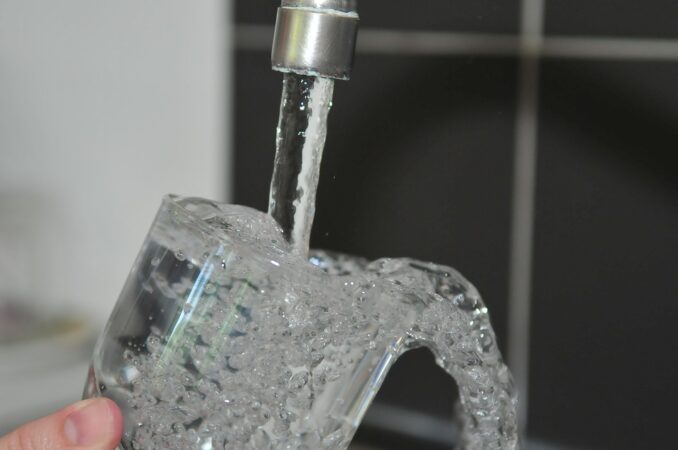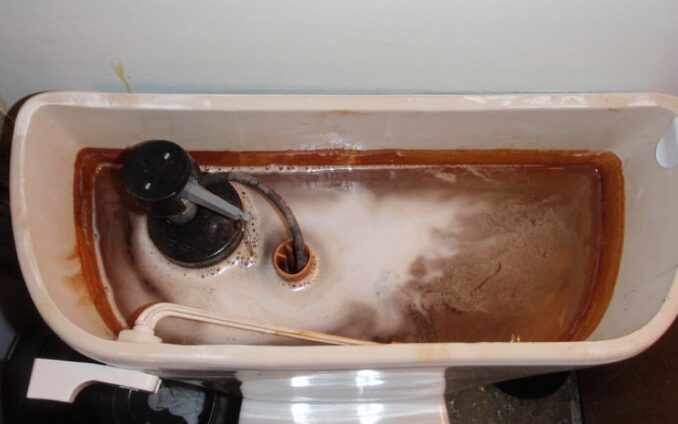Just about everything in life comes with its own unique set of pros and cons. Consequently, we can only hope that there are more pros than cons. In the case of well water, the pros and cons just about balance out. The aim of this article is to highlight the disadvantages of well water for you to consider.
When planning and implementing any residential water treatment system, there are necessary steps to take. With that being said, it’s always important to be aware of the disadvantages you’ll face along the way. This way, you’ll be able to custom-tailor your water treatment system for the best possible results.
Overall, the good thing about the disadvantages of well water is that they can be mitigated with a properly installed water filtration system.
1. Hard Water

Source:graydonfaulstickplumbing.com
Hard water is more common in wells. Since groundwater picks up minerals that latch onto water molecules, you’re more likely to experience hard well water than you would on municipal water. Generally, hard water contains high levels of calcium and magnesium.
As a result, you’ll notice streaking on your washed dishes, limescale on your plumbing fixtures, and soap that doesn’t lather as well. However, there’s a perfect solution for hard water, and it’s called a water softener.
Currently, there are salt-based and salt-free water softeners. In the case of very hard well water, it’s best to stick with a salt-based system. Since salt-free systems are relatively new, the more proven salt-based systems can be relied upon to get the job done.
When choosing a softener, you’ll need to match its size to the size of your home. Plus, there are several additional factors to consider when choosing a softener, such as the type of control head you prefer.
2. Hydrogen Sulfide

Source:thewaternetwork.com
The tell-tale sign of hydrogen sulfide in well water is a rotten egg odor. And the problem with hydrogen sulfide is that it’s not easy to remove. First, there’s the need to have your well water tested to identify the hydrogen sulfide level in ppm. Second, once you know the ppm level, then it’s time to find a filter that can handle the job.
Most trustworthy water filtration companies list the max hydrogen sulfide ppm that their filters can handle. For this reason, you want to make sure that the hydrogen sulfide level in your water is well below the max level offered by the filter. Because if not, you could end up with inadequate removal, resulting in a milder rotten egg odor that continues to linger.
Primarily, water filters that remove hydrogen sulfide rely on an oxidation process. Through oxidation, the hydrogen sulfide becomes easier for the filter to remove, resulting in complete elimination of rotten egg odor.
3. Iron

Source:angelwater.com
Another common disadvantage of well water is an iron bacteria problem. If you notice reddish deposits, foul-tasting water, and slimy coatings around your plumbing fixtures, it’s most likely an iron bacteria issue. Once iron bacteria infect a well, they must be physically removed.
This process involves cleaning parts of the well and disinfecting them with a chemical solution, such as diluted bleach. Once the system has been disinfected, it’s important to take the necessary steps to prevent iron bacteria from re-entering your well.
Additionally, most well water filtration systems are made to remove higher than normal concentrations of iron along with hydrogen sulfide. Therefore, if you have an iron issue along with hydrogen sulfide, there are filters on the market that knock out both problems with a single filter.
4. Harmful Bacteria

Source:youtube.com
Beyond iron bacteria, there are more harmful types of bacteria that can make their way into wells. Common bacteria that enter private wells are fecal coliform, salmonella, and giardia. Unlike iron bacteria, these types of bacteria are more harmful to human health. Thus, consuming these types of bacteria can lead to serious health consequences.
A good way to keep tabs on bacteria in well water is to be extra careful when living near livestock, after heavy rainfall, and staying informed about any bacterial issues in your area. Similar to the issues listed above, there are solutions for purifying well water before it enters your home.
The best solution is a UV water filter. Wellwaterhelper.com recommends UV water purifiers by Springwell, Pentair, and US Water Systems for the most effective elimination of bacteria. With the help of a UV water filter, you get the peace of mind of knowing your water is bacteria-free without the use of chlorine or other chemicals.
5. Maintenance

Source:culligan.com
Compared to municipal water, keeping tabs on well water requires extra attention and maintenance. For example, there’s the need to replace pumps, remove sediment, and keep a water softener loaded with salt. Comparatively, people on municipal water may only need a single whole-house filter to get the job done.
On the other hand, well water treatment may require an entire system with multiple filtration stages that must be maintained. As is the case with any system, there’s always the chance of failure at any point in the system.
On the bright side, the consistent supply of fresh water with no monthly water bill is always a plus. And as far as maintenance goes, it really depends on the quality of your well and water to gauge how much the annual maintenance costs will be.
Wrapping Up
The disadvantages of well water may appear daunting at first, but it’s important to keep in mind that well water does have its advantages. With a properly installed well water treatment system, you’ll get delicious chlorine-free drinking water to use throughout your home.
Regardless, the first step is to always test your well water to know exactly what’s in it. A certified lab is your best choice to get accurate measurements of contaminants. Once you know the contaminant levels, matching your water to the correct filters becomes an easier task.
All in all, with proper planning and action, you’ll forget about the disadvantages of being on well water for years to come.





